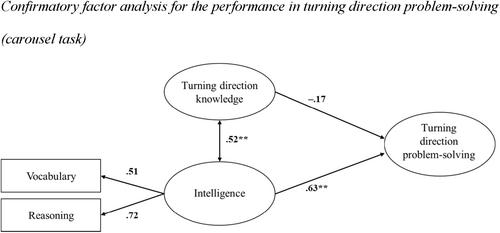Domain-specific knowledge and domain-general abilities in children's science problem-solving
Abstract
Background
Problem-solving in early and middle childhood is of high relevance for cognitive developmental research and educational support. Previous research on science problem-solving has focussed on the process and strategies of children handling challenging tasks, but less on providing insights into the cognitive network that enables science problem-solving.
Aims
In this study, we aimed to investigate whether performance in science problem-solving is mainly determined by domain-specific rule knowledge, by domain-general cognitive abilities or both.
Methods
In our study, 215 6- to 8-year-old children completed a set of three domain-specific rule knowledge tasks and three corresponding problem-solving tasks that were content-coherent, as well as a vocabulary task, and a reasoning task.
Results
Correlational and regression analyses revealed a negligible impact of domain-specific rule knowledge on corresponding problem-solving tasks. In contrast, the associations between problem-solving performance in different domains and the associations between problem-solving performance and domain-general abilities (vocabulary and reasoning) were comparably strong.
Conclusions
The findings suggest that science problem-solving in primary school children primarily relies on domain-general cognitive abilities. Implications of these findings are discussed with regard to cognitive theories and early science education.


 求助内容:
求助内容: 应助结果提醒方式:
应助结果提醒方式:


